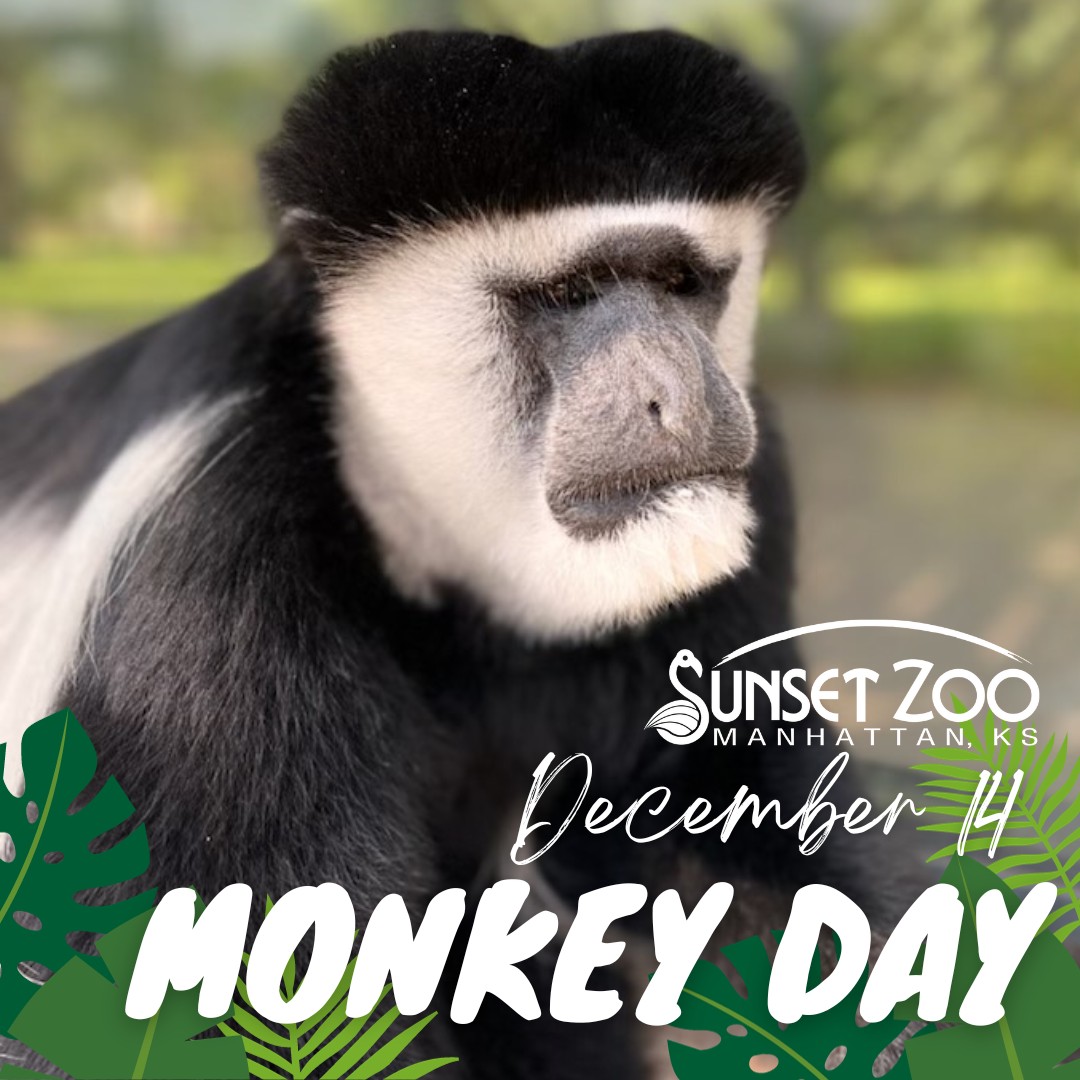– **Unfolding the Joyful Fervor of Happy Monkey Day:** A look into what makes this quirky holiday a favorite among enthusiasts and conservationists alike.
– **Monkey Business at Sunset Zoo:** Introducing some of the most beloved monkey residents at Sunset Zoo and their unique personalities.
– **Tailed Telltales:** Exploring the distinguishing tail tales and characteristics that set monkeys apart from their ape cousins.
– **Conservation and Coexistence:** The significance of Happy Monkey Day in raising awareness for monkey conservation and their habitats.
– **Engaging with Our Simian Friends:** How to responsibly appreciate and learn from monkeys in their natural and zoo environments.
As we swing into the playful and often overlooked holiday, Happy Monkey Day, let us peel back the layers of this unique celebration and explore the reasons behind its growing popularity. December 14th marks a day dedicated to all things monkey, from the smallest pygmy marmoset to the largest mandrill. This day provides an opportunity to acknowledge the joy these animals bring into our lives and to spotlight the important ecological roles they play and the conservation challenges they face.
At the heart of any discussion about monkeys is a fascinating piece of trivia that separates our charismatic protagonists from their close relatives: monkeys have tails, while apes do not. This is often a child’s first lesson in primate taxonomy, and it sets the stage for a deeper understanding of the myriad species that make up this eclectic group of mammals.
Now, let us venture into the world of monkey residents at Sunset Zoo, where a few distinctive personalities are sure to capture your imagination:
– **Bella, the Bolivian Squirrel Monkey:** Known for her acrobatic antics and a never-ending energy reserve, Bella is a true crowd-pleaser, embodying the mischievous spirit many associate with monkey-kind.
– **George, Geoffroy’s Spider Monkey:** With limbs that stretch on for miles and an affinity for leisurely swinging through his habitat, George could be the ambassador for arboreal grace, skill, and a laid-back lifestyle.
– **Zara, the Black-Capped Capuchin:** Don’t let Zara’s pensive looks fool you; this intelligent primate is a master at problem-solving and has a penchant for puzzles, providing onlookers with a window into the impressive cognitive abilities of her species.
Celebrating Happy Monkey Day isn’t just about fun and games; it’s also about spotlighting the crucial issues facing monkey conservation. Habitat destruction, wildlife trafficking, and the illegal pet trade are just some of the serious threats that these creatures confront every day. By uniting in our love for monkeys today, we raise awareness, advocate for their protection, and preserve their natural territories.
How did Happy Monkey Day become such an anticipated event in animal lovers’ and conservationists’ calendars? It started as harmless fun among two art students in 2000 and has grown internationally. What better way to celebrate than learning more about our fascinating primate cousins and how we can contribute to their ongoing survival?
One might ask, “Why devote an entire day to monkeys?” The answer lies in the boundless intrigue that these animals inspire. Their behavior can enlighten us on fundamental aspects of primate biology—such as the social structures, communication techniques, and innate intelligence many monkey species display. In observing these traits, humans have gained valuable insights into our evolutionary history, as we share a distant ancestor with these remarkable mammals.
The myriad species that fall under the monkey classification boast a formidable array of adaptations, each suited to a specific way of life in their respective ecosystems. From the nose-twitching snub-nosed monkey, breathing in the cool high-altitude air of Asian mountains, to the durable desert-dwelling baboon of Africa, monkeys have colonized an impressive variety of habitats across the globe.
As we wax lyrical about these adaptable animals, it’s crucial to appreciate the fragile balance within which they exist. Deforestation and habitat fragmentation threaten the intricate web of life, pushing some species to the brink of extinction. Happy Monkey Day brings together individuals across different sectors—researchers, conservationists, educators, and people like you—to ignite a concerted effort to turn the tide on these pressing issues.
So, how does one engage with monkeys responsibly, whether in the wild or managed care environments like zoos? First and foremost, understanding that monkeys have complex social systems and are not mere playthings is paramount. When visiting them in settings like Sunset Zoo, always respect the guidelines set for interaction. These measures are in place not only for your safety but also for the well-being of the monkeys.
Furthermore, participating in citizen science projects and supporting programs contributing to primate conservation can make a real difference. Your choices as a consumer can also have an impact. Supporting companies and products promoting sustainable practices helps preserve the habitats that monkeys and other wildlife depend on.
Happy Monkey Day goes beyond mere celebration—it is a call to action. As we indulge in the joy that monkeys bring us, let us not forget the responsibility we bear as stewards of the planet. Protecting our primate kin and their habitats is a journey we must embark on together. On this Happy Monkey Day, let’s renew our commitment to ensuring that the mirthful chatters and playful leaps of these fascinating creatures continue to animate our world’s forests for generations to come.
In conclusion, Happy Monkey Day is not only an opportunity for whimsy and fun. Still, it is also a chance to step into the world of these incredible animals, appreciate their contribution to our ecological tapestry, and reaffirm our role in safeguarding their future. So, let’s embrace the day’s spirit, educate ourselves and others, and engage in meaningful actions that honor our shared planet and its remarkable inhabitants. Happy Monkey Day, everyone—let’s make it count!
*****
Source Description
Happy Monkey Day!
Fun fact: The main difference between monkeys and apes is that monkeys have tails, and apes do not.
Can you name the monkey residents at Sunset Zoo?


